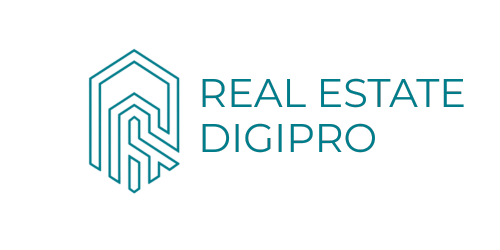Social media has revolutionized the way real estate professionals find leads. Platforms like Facebook, Instagram, and LinkedIn have become indispensable tools for connecting with potential clients. According to the National Association of Realtors (NAR), 52% of realtors generate more leads through social media than through traditional methods like MLS or CRM systems. If you’re not leveraging social media ads yet, you’re missing out on a game-changing opportunity.
Here’s a comprehensive guide to using social media ads to find quality real estate leads.
1.Define Your Strategy Before You Spend
The foundation of any successful ad campaign is a well-thought-out strategy. Start by answering these key questions:
- Who is your target audience? Identify their age, location, interests, and online behavior.
- Which platforms will you use? Facebook and Instagram are great for visuals and engagement, while LinkedIn can help you connect with industry professionals.
- What is your budget? Determine how much you’re willing to spend and what results you expect.
Having a clear plan ensures you’re not wasting resources on aimless campaigns.
2.Craft Engaging Ad Content
Social media ads should stop scrollers in their tracks. Use high-quality visuals of properties and craft copy that speaks directly to your target audience’s needs. For example:
- Showcase your listings with carousel ads that allow users to swipe through property photos.
- Promote open houses with event-specific ads that include date, time, and location.
- Highlight testimonials to build trust and showcase your expertise.
3. Use Advanced Targeting Options
One of the biggest advantages of social media advertising is its sophisticated targeting. Platforms like Facebook and Instagram let you target users based on:
- Location: Focus on neighborhoods or cities you serve.
- Behavior: Reach people browsing home-buying or renting resources.
- Interests: Target those interested in home décor, real estate investment, or related topics.
The more precise your targeting, the higher your chances of reaching serious buyers or sellers.
4. Leverage Re-targeting Ads
Re-targeting is a powerful tool for nurturing leads who’ve already interacted with your business. Set up retargeting campaigns for:
- People who visited your website but didn’t inquire.
- Users who engaged with your social media posts.
- Prospective clients who clicked on your previous ads.
This keeps your brand top of mind and encourages them to take the next step.
5. Optimize Your Landing Pages
Your social media ads should lead prospects to a well-designed landing page. Make sure it includes:
- High-quality images of the property or service being promoted.
- A clear call-to-action (e.g., “Schedule a Viewing” or “Request More Info”).
- Easy navigation and mobile responsiveness.
Your landing page is where leads convert, so don’t overlook its importance.
6. Test and Refine Your Campaigns
The best campaigns are built on continuous improvement. Use A/B testing to determine what works best. Test variations of:
- Ad copy.
- Visuals or videos.
- Targeting parameters.
Monitor performance metrics like click-through rate (CTR) and cost per lead (CPL) to optimize your efforts.
7. Don’t Forget Organic Engagement
While ads are crucial, organic engagement can amplify your efforts. Post regularly about:
- New listings.
- Industry trends and tips.
- Success stories.
Encourage users to follow your page for updates and exclusive offers.
Conclusion
Social media ads offer unmatched potential for real estate lead generation. By crafting a strategic plan, creating compelling ads, and optimizing your campaigns, you can attract qualified buyers and sellers while building a strong online presence.
Ready to supercharge your lead generation? Start implementing these strategies today and watch your real estate business grow.
Looking for expert help with your social media campaigns? ZPittman Digital Marketing Services specializes in real estate marketing strategies that deliver results. Contact us to get started!
.

Looking to take your digital marketing to the next-level? Let's talk about it.
Everyone’s business is unique. Sometimes marketing is simple, and other times it can be complex. If you need to explore solutions, our team is here to help you navigate the process together.













